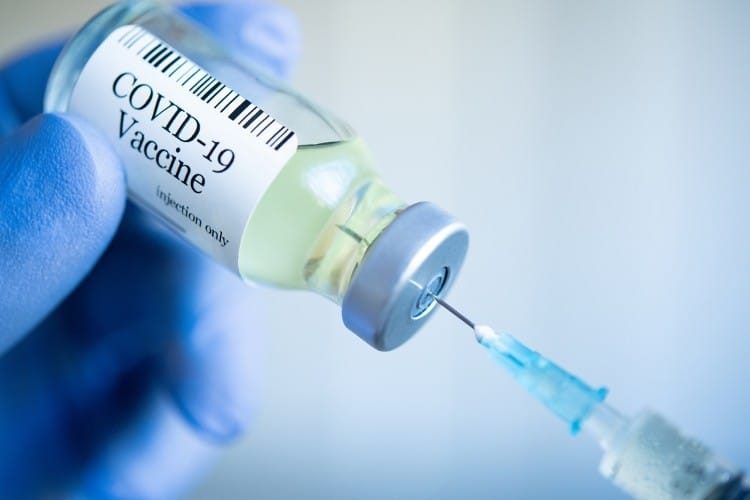
The vaccine rollout has been a bonanza for drug manufacturers, making the production of COVID-19 vaccines one of the most lucrative businesses these days.
Reportedly, Moderna’s share price has gained more than 700 percent since February 2020. Pfizer stock price has surged nearly 50 percent since last year, while its German partner, BioNTech, went from a startup to a multibillion-dollar company in just months, whose share price grew by 600 percent. Chinese CanSino Biologics’ stock is up about 440 percent over the same period.
The COVID-19 vaccine industry has added nine names to the Forbes Rich list.
Topping the list of new billionaires are Moderna CEO Stéphane Bancel and Ugur Sahin, the CEO of BioNTech, which has produced a vaccine with Pfizer. Both CEOs are now worth around $4 billion, according to an analysis by the People’s Vaccine Alliance, a campaign group that includes Oxfam, UNAIDS, Global Justice Now, and Amnesty International.
Senior executives from China’s CanSino Biologics and early investors in Moderna have also become billionaires on paper as shares skyrocketed, partly in expectation of profits earned from COVID vaccines, which also bodes well for the companies’ future prospects.
Moderna’s COVID-19 vaccine sales hit $1.7 billion in the first three months of this year, and it had its first profitable quarter ever. It is anticipated to make $13.2 billion in COVID-19 vaccine revenue in 2021.
Pfizer beat all forecasts and generated $900 million in the first quarter of 2021 thanks to its COVID jab. The annual vaccine revenue is forecasted to beat $26 billion — a staggering sum that would make the shot the most profitable medicine in pharmaceutical industry history measured by sales in a single year.
Pfizer CEO Albert Bourla said the company expects to see “durable demand” for its shot, similar to the market for influenza vaccines. Big Pharma companies have significantly expanded their manufacturing capacity, while seeking to expand their market to reach children as young as two, and have started testing the vaccine on six-month-old infants. All three pharmaceutical companies — Pfizer/BioNTech, Moderna, and Johnson & Johnson — whose shots had received an FDA emergency use authorization are working on the seasonal COVID booster shots expected to hit the market by fall.
Pfizer’s partner, BioNTech, made a net profit of €1.1 billion ($1.3 billion) in the first three months of the year, largely thanks to its share of sales from the COVID-19 vaccine, compared with a loss of €53.4 million ($75.9 million) for the same period last year.
The vast enrichment of these private corporations and their shareholders is made possible through massive investments by governments, particularly that of the United States, which spent over $10 billion helping to develop the vaccines produced by Pfizer and Moderna, while BioNTech received €325 million ($397 million) from the German government.
The mRNA vaccines developed by these two companies are based on a key discovery of the National Institute of Health’s (NIH) Vaccine Research Center, which holds the patent for how the virus’s spike protein is stabilized in the vaccine.
The NIH says it cannot commercialize its discoveries even with its considerable size and resources — it relies instead upon partners. Typically, a royalty-bearing exclusive license agreement with the right to sublicense is given to a company from NIH to use patents, materials, or other assets to bring a therapeutic or vaccine product concept to market.
While several companies have licensed the NIH’s patent, Moderna makes use of the NIH discovery without paying any royalties.
While it is understandable that public corporations have an obligation to their shareholders and employees to maximize profits, it is unethical, to say the least, to keep the injections on the market considering the adverse reactions to the vaccines, which include death.
While traditional vaccines have potentially saved millions of lives and billions of dollars in the prevention of infectious diseases, the COVID vaccines seem to be a different story. According to the FDA’s description of the vaccines, the injections are experimental, and stage III medical trials aimed at assessing their safety and efficacy took about six months instead of the usual two to four years, whereas mRNA technology has never been used in humans before. At this point, one may only speculate on the long-term consequences of these vaccines — all of which should have been evaluated during the trials. At the same time, reports of side effects — including death — occurring after the shots keep piling up at the CDC’s Vaccine Adverse Event Reporting system.
The argument that there are millions of vaccines already administered so a few deaths are to be expected is simply immoral and inhumane. Getting an experimental shot is like playing Russian roulette. Now adolescents are playing it, too, with younger children to join soon. Moreover, the risky game will be likely recommended to be played seasonally, all while enriching Big Pharma.
When healthy people die after suddenly developing a rare autoimmune illness days after the receiving a vaccine, and a pharmaceutical company states that it is aware of a “highly unusual” death and is “investigating it further” but doesn’t recall the injection, the company seems to care only about its bottom line, and allows other people to risk getting injured or even die.
This problem receives little publicity, with those raising concerns usually being censored by Big Tech (Facebook, Twitter, YouTube, and filtered out by the Google search algorithm). Meanwhile, President Biden is urging Americans “get vaccinated” or wear a mask until they do, while CDC director Rochelle Walensky claims the jabs are “100% effective in preventing hospitalizations and deaths from COVID-19, even if they don’t prevent 100% of coronavirus infections.”
So far, Big Pharma’s “sales team” at the top of the federal government is doing an outstanding job, and the business is booming.




